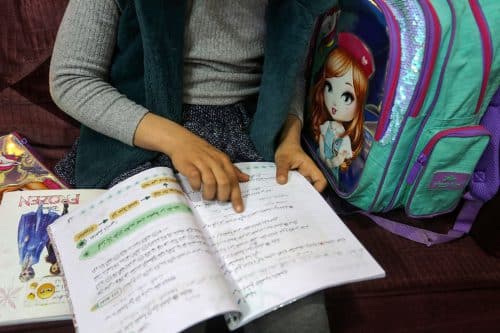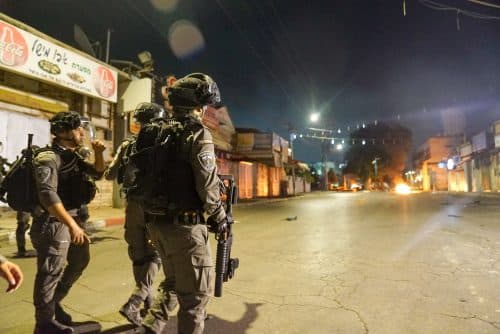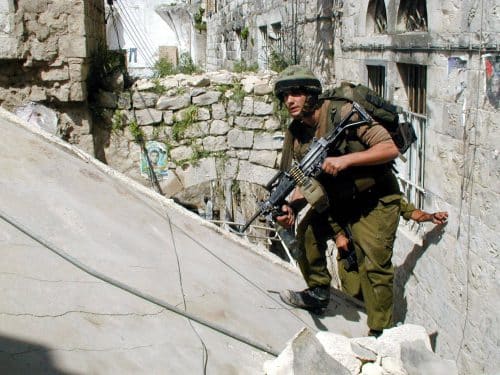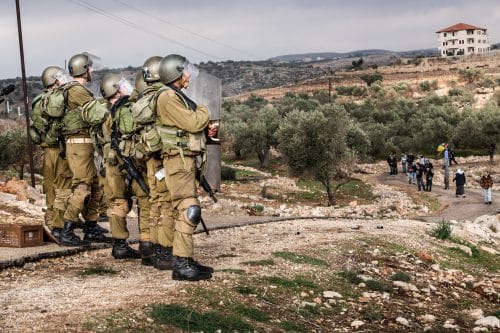Read an SMS while driving? Expect to be fined NIS 1,000. Drove a 7-year-old without the appropriate booster seat? You will probably pay NIS 750. And if you threw stones at a Jewish vehicle for the purpose of hurting another person? It is possible you may only pay NIS 250, that is if you are caught and put on trial. In serious cases, you might even pay NIS 2,500.
Ridiculous, right? Well, this does not amuse us and therefore we decided to examine this issue in depth, in order to understand why this is happening and what can be changed.
The phenomenon of people throwing stones and Molotov cocktails throughout Judea and Samaria has long since become a strategic challenge that undermines the sense of security of the civilian population and contributes to the stability and continuity of the Palestinian terror routine.
The dimensions of this phenomenon leave no room for the misperception that these are “individual attackers”. The data indicates an entirely different picture: these phenomena are the final expression of an organized system of institutional incitement to commit terrorist operations against Israel on the part of the Palestinian Authority.
Despite this being a dangerous strategic phenomenon that harms human life, in practice the civil and military courts are lenient with the terrorists and avoid implementing the full measure of the law upon them. In addition, very few terrorists are actually brought to justice and many complaints are closed by the police on the grounds of “unknown felon”.
Why is all this happening? Our Research Department examined this issue in depth and reached some interesting insights.
Cost Versus Benefit, Opportunity Versus Deterrence
The flourishing of this form of terrorism was made possible by a convergence of five key reasons:
- Cost: It is easy, simple and cheap to carry out attacks of this type, whether due to the availability of rocks and stones in the area and that they do not require significant preliminary organization, or due to the relative ease of preparing a Molotov cocktail.
- Benefit: A rock or Molotov cocktail that hit a vehicle can easily start a chain reaction that ends with many casualties. In other words, the potential casualty index for both injuries and death as a result of such an attack, alongside the psychological effect of a declining sense of security when traveling along roads, are impressive. In addition to this, stone throwing is perceived as less threatening than use of firearms or knife, and therefore it is easier to carry out attacks of this type without being exposed to significant media scrutiny.
- Opportunity: As a result of the daily friction between the Palestinian population and the Israeli population and security forces, the attackers have plenty of opportunities to carry out attacks of this type.
- The Absence of Operational Deterrence: The security forces preferred, at least until recently, to avoid friction over attacks that are considered lighter, and focused upon thwarting and arresting attackers who planned or carried out shooting, kidnapping, bombing and other types of attacks.
- The Absence of Legal Deterrence: the military and civilian courts prefer to be lenient with terrorists who make use of rocks and Molotov cocktails and avoid implementing the full measure of the law upon those attackers. Despite the dimensions of the phenomenon of stone throwing, in practice very few terrorists are brought to justice, and the penalties that are actually imposed upon them do not deter at all.
Thousands of Attacks, Dozens of Injured
At present, there are about 20 hotspots that are known for stone throwing throughout Judea and Samaria, mostly along transportation routes and at locations near the separation fence. Those involved are mostly young men ages 10-20 facing off against IDF forces, sometimes with the encouragement of local agitators and far left organizations.
For example, 1,884 stone throwing attacks and 496 Molotov cocktail attacks have been reported in 2020, which led to the injury of 154 civilians and soldiers. On average, 2021 saw an increase of 210% in rock throwing attacks and 156% in Molotov cocktail attacks relative to the previous year.
The IDF and police are operating against this threat by deploying ambushes and making arrests. However, the primary operational challenges include the density of the areas in which the attacks are carried out, internal assistance in the escape of the terrorists, multiple scenes of attacks vis-à-vis the limited security forces, the operational ineffectiveness of the means the IDF deploys against this phenomenon, release or non-continuation of incarceration of those apprehended, cumbersome rules of engagement and a legal proceeding that ends with a lenient penalty.
An increase of 156% in Molotov cocktail attacks and 210% in rock throwing attacks in the years 2020-2021*
*A comparison between the monthly average according to annual figures in 2021 and monthly figures from December 2022
Legal Helplessness: Cases Closed, Lenient Penalties
As stated, one of the challenges of dealing with the rock throwing phenomenon is the lack of deterrence stemming from a legal proceeding that ends with a lenient punishment. From an examination of all the cases opened against those accused of throwing rocks and Molotov cocktails in years 2019-2020, a harsh picture emerges of significant lenience on the part of the civil and military courts in actual penalties compared with the penalties stipulated by law up to prison sentences that are 95% shorter than that stipulated by law, at times merely a few days or months. In 11% of the rock throwing cases no prison sentences were set, despite the circumstances of the failure to set prison sentences not being known and requiring an individual examination of the cases.
The average penalties stand at only 8.3 months in prison for throwing rocks and only 13 months prison for throwing Molotov cocktails, compared with the maximum sentence of 10-25 years as stipulated by law, subject to the circumstances. Moreover, comparative examination revealed that a significant percentage of the reported events do not end with indictments: In the first half of 2020 only 21% of the reported rock throwing events and 33% of the reported Molotov Cocktail throwing events Ended with an indictment.
“Words of the Investigator”
The insights that emerged from the comprehensive study we conducted were examined by senior members of the IDSF, who formulated concrete recommendations for changing the situation. These recommendations include defining certain areas as high risk for loss of life as a result of rock throwing and defining Molotov cocktail throwing as a life endangering attack, which justifies taking defensive measures such as firing in order to neutralize; a concentrated effort to arrest those who recruit, encourage and direct the attackers; setting up a computer system with a database for synchronization; and formulating legislation that would enable imposing appropriate and harsher penalties upon those involved in terrorist activities.
“This position paper was written by the Research Department in preparation for a debate in the Knesset’s Interior and Security Committee on the issue of implementing the full measure of the law upon rock throwers in Judea and Samaria”, says Yaron Buskila, Lt. Col. (res.) and IDSF Director of Operations, who is signed on the study. “The reason for writing the document was to legislate minimum penalties in the law imposed upon throwers of rocks and Molotov cocktails in a manner that does not allow judges to be significantly lenient in penalties, as is the case today. The document was written in conjunction with litigators specializing in the laws of war, experts on the issue of Judea and Samaria, researchers entrusted with collecting data and senior commanders who serve as regional commanders in Judea and Samaria. The document was presented in a committee meeting in which ministers, MKs, senior police officers, IDF officers from Judea and Samaria and representatives of the Judge Advocate General and the state Attorney’s Office were present. Following the issues that were presented in the Movement’s document, at the end of the meeting, the Knesset having instructed the state Attorney’s Office to present the meanings of establishing minimum penalties and scheduled an additional hearing in order to promote a change in the law.”





